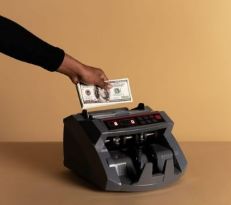Merchant Cash Advance: The Right Choice For Your Business?


A merchant cash advance is different from a standard small business loan. Sometimes known as an MCA, they can provide companies with cash fast. Many lenders don’t consider them to be a loan as they offer companies collateral in exchange for a portion of the business’s future sales. Before you decide if a merchant cash advance is right for you, let’s take a look at how they work.
What Is a Merchant Cash Advance?
A merchant cash advance is not technically a loan. Instead, a lender provides a company with a cash advance, usually in the form of a lump sum, that is deposited into the borrower’s bank account within 24-48 hours.
According to GreenStarCash, MCA’s are similar to payday loans for individuals, in that the money loaned is expected to be repaid when the borrower receives income. In the case of payday loans, this is the borrower’s paycheck; for businesses, it means future sales.
The risk of the loan and how much the lender will offer are determined differently than how banks or institutions approve small business loans. Usually, before extending a merchant cash advance app the lender will consider your business’s past and current sales. This will help them weigh the likelihood of the advance being repaid on time. Because of the inherent risk due to volatility of sales, MCA rates may be higher than other lending options.
How Does a Merchant Cash Advance Work?
Though merchant cash advances historically were only offered to businesses that relied on debit and credit card sales, offerings have expanded. This is because MCA’s can be structured in one of two ways.
The first is the most common. A lender evaluates your business’s history, sales, and projected revenue. Based on these numbers they can determine how likely your company is to repay the advance and how long it will take. Then, the lender provides you an advance or a lump sum of cash based on how much your business will earn in the future.
They also set a repayment rate that will be taken from your credit or debit card sales. This is known as the holdback. The holdback is the daily or monthly percentage of your company’s credit and debit card sales that will go towards repaying your MCA. It is commonly a fixed rate and can range from 10 to 20 percent.
Fees will also be assigned, this is known as the factor rate. It is based on risk and your company’s probability of repayment. The factor rate is generally anywhere from 1.2 to 1.5 percent.
Therefore, the more transactions your business makes the faster you will be able to pay off your advance. If you happen to have a slow period, the money taken as repayment will be lower. Because how much you pay on the advance is relative to your sales, it can be easier to consistently pay off your debt.
An example is if your company requires $20,000 to purchase inventory. The lender will extend you an MCA for $20,000 but will also assign you a 1.4-factor rate. This means that you will be required to repay $28,000 in total. They will deduct 10% of your monthly credit and debit sales until you have repaid the loan in full.
The second option is fixed weekly or daily deposits from a bank account. This is referred to as an ACH merchant cash advance. The lender estimates your monthly revenue and then assigns an amount to be deducted from your account at regular intervals. This type can be ideal for companies who don’t rely heavily on credit or debit transactions. However, the repayment amount isn’t tied to your sales. The amount deducted won’t fluctuate regardless if last month’s earnings were poor.
Why Do Businesses Choose an MCA?
They’re Fast
A merchant cash advance can be a great option for some small businesses. They are quick and easy. In most cases, the lender reviews your receipts to determine eligibility. The application process isn’t complicated or paperwork-laden. You can have the money in your account as soon as 24 hours after approval.
The Repayment Amount is Variable
A fluctuating repayment amount that is based on sales is preferred by most small businesses. If you had a lackluster month you won’t have to worry about coming up with funds. When your sales are down your payment is down too.
No Physical Collateral Required
Unlike other loan types, your business won’t have to put up valuable physical assets to secure a cash advance. This means, if you are unable to repay your loan you won’t risk your assets being taken. However, in some instances, a personal guarantee is required. Therefore if your company can’t repay, you are personally responsible for the remaining debt.
Is an MCA Right For Me?
Whether or not a merchant cash advance is right for you depends on multiple factors. You know your company best. Funds are typically easy to secure and are deposited quickly. Though the repayment amount is tied to your sales, the fees and APRs associated with MCA’s can be high. Be sure to review the agreement thoroughly and consider alternatives before making a decision.



